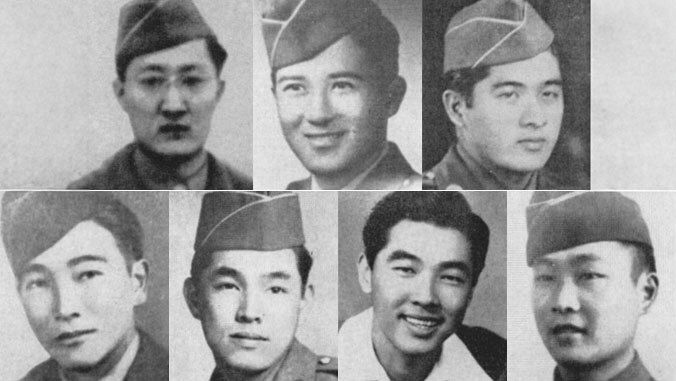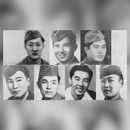Reading time: < 1 minute Top, from left: Daniel Betsui, Robert Murata, Jenhatsu Chinen
Top, from left: Daniel Betsui, Robert Murata, Jenhatsu Chinen
Bottom, from left: Howard Urabe, Hiroichi Tomita, Grover Nagaji, Akio Nishikawa
Seven Japanese American soldiers from Hawaiʻi who trained as cadets in the University of Hawaiʻi Army ROTC program received the honors they were denied more than 80 years ago due to wartime prejudice.
At the request of Hawaiʻi’s Congressional Delegation, the U.S Army posthumously promoted Grover Nagaji, Howard Urabe, Robert Murata, Jenhatsu Chinen, Daniel Betsui, Hiroichi Tomita and Akio Nishikawa, to the rank of second lieutenant.
After being expelled from ROTC under policies tied to Executive Order 9066, the men volunteered for service in the 100th Infantry Battalion/442nd Regimental Combat Team—the most decorated unit in U.S.. military history. All seven were killed in combat in Europe in 1944.
“These young men wanted to serve as leaders in the U.S. Army. They trained for it, they earned it, and they were denied that chance because of wartime prejudice,” said U.S. Representative Jill Tokuda. “But they still put on the uniform and gave their lives in defense of our country. Today, we finally recognize them as the officers they were meant to be.”
In 2012, UH awarded the group of students posthumous bachelor’s degrees. The Army’s action now completes a decades-long effort to honor their leadership and sacrifice.
“It is only right to honor these seven Americans who, through setback, strife and sacrifice, continued to remain committed to the ideals and principles espoused in the Constitution of the United States,” said Lt. Col. Jerrod Melander, UH Professor of Military Science.

